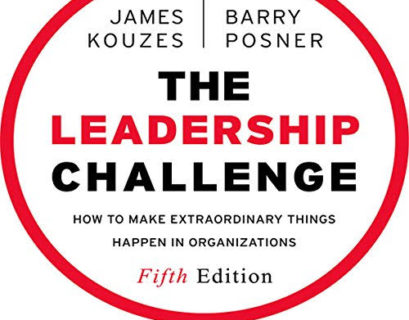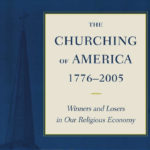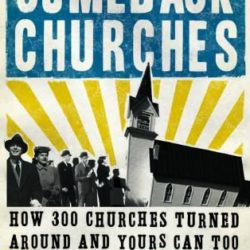by Pastor Joe Epley
When pastors hear the word “burnout,” most have an adverse reaction to it. In the best-case scenario, “burnout” is a word that applies to other people. A pastor may occasionally think of the problem of burnout, but frequently believes themselves to be insulated for any number of seemingly logical reasons. In the worst-case scenario, burnout is a cause for fear and alarm, a very present reality that is either currently taking over a minister’s life, or at the very least knocking at the door.
Chris Clem experienced both these extremes, and his journey into studying burnout holds wisdom for leaders at any level of ministry experience. Before Covid-19, Chris pastored a church of over 300 people and spread the gospel through use of contemporary worship, an updated building that doubled as a community center, and outreach that focused on showing the love of Jesus to unbelievers. When Covid-19 shut down all his regular avenues of ministry, Chris incrementally began to slip into burnout. Surprisingly, and regretfully, Chris admitted to me that he never saw it coming.
He had always approached pastoral work with energy, excitement, and a strong work ethic. He had previously served as an executive pastor in a Texas church of 4,000 members and served as the executive director for the Significant Church Network, where he counseled and ministered to rural pastors of all denominations. From this role was birthed a passion for the rural church that compelled him to accept a role as lead pastor of a rural church in Highland AK, where he has served for the last fourteen years with wonderful success in terms of church growth and community impact.
The thing about Chris’s story that stuck out to me is that it is hardly unique. When you remove the specific details, you have a pastor who was prepared by God, given a passion to minister to the rural church, and pursued that call through by serving as a small-town pastor and loving his community well. I have met many rural pastors that could fit that exact profile. If you are reading this article, it is highly likely that you fit that profile, whether you are a vocational pastor or are bi-vocational in your calling. Another common trait that we all likely share with Chris is his complete surprise that he could find himself in a place of burnout in ministry.
When contemplating whether or not we are burned out, many of us will give logical reasons why we are not “too worried” about burnout. Pastor Chris had quite a list of why he felt he could handle any trauma or emotionally draining thing life threw at him. He had worked in high pressure church environments. He had worked in revitalizing a small dying church. He even worked in law enforcement, giving him a front row seat to another level of trauma specific to that role. After surviving all of that, Covid-19 and its effects seemed like just another hurdle to be crossed without much concern for his own mental, emotional, and spiritual well-being. He was even pursuing his doctorate at that time, and yet still seemed to be passionately doing the Lord’s work. However, in what he describes as a true “bait and switch,” two professors for his doctoral studies asked him to investigate burnout academically, hoping that he would see the signs as they were affecting him personally.
This journey led him to study signs and symptoms of burnout, culminating in his realization that it was closer to him than he first realized. As he studied each new symptom, he began to identify more and more with the emotionally exhausted and disengaged pastor. Ultimately, he realized a startling truth about himself.
He had begun to believe that no matter what he did, or how hard he tried, he could not make a difference.
Pastor Chris has since dedicated his doctoral journey to studying burnout and its effects on ministers in hope that his work can equip pastors to successfully avoid burnout and continue doing effective ministry. We will attempt to narrow down the principles Chris is studying into a few big principles to apply to our lives. In order to fight burnout, Chris seemed to consistently return to the following principles:
1) Get educated.
After reading countless books and spending innumerable hours studying the subject, Chris was convinced that up to 90% of rural pastors could be dealing with burnout and not even realize it. He stressed the need for basic education on what to look for in yourself or in others in order to catch burnout early. One tool he found effective was the MASLACH burnout inventory, which charges a small fee, but asks incredibly intuitive questions to help a pastor figure out where they are on a spectrum of burnout.
He also stressed knowing simple signs for seeing burnout. Emotional exhaustion is a state of existing where you cannot seem to find the passion or energy to pursue ministry as you previously did. Depersonalization means you begin to feel detached from people around you. This is commonly felt as a sense of loneliness, or a sense that your experience cannot be shared or understood by anyone else. A general sense of feeling ineffective or a loss of purpose in “why you do what you do” is also a common sign of burnout. Even knowing these simple symptoms can equip a minister to manage their own burnout or reach out to others who may be struggling.
2) Practice self-compassion.
Covid-19 especially has pushed leaders to the breaking point. With the situation changing weekly, many leaders feel as if the burden rests squarely on their shoulders to successfully navigate their church and community through this time. Chris pleads with pastors to recognize that they do not have to have all the answers, or the expertise, or even the right decisions for their church every single day. A pastor cannot possibly care for the needs of others over the course of decades if they cannot refill their own tank and minister to their own needs. Each person will likely express this principle differently, but it is important to make time for self-compassion.
3) Maintain relationships.
“It’s not a religion, it’s a relationship.” This slogan has permeated Christian culture for over a decade, but burnout increasingly impairs a minister’s ability to connect with Jesus. The only answer is to get creative when connecting with Jesus. Reading the Bible, praying, and reflecting on past experiences with God are viable methods. In addition to this, maintaining a loving family atmosphere and vibrant close friendships acts as a natural barrier against burnout. It can be hard to hear, but if a minister’s marriage, family, and close friendships are not given time and energy, it frankly will not matter what we do in our pastoral role; the end result will ultimately be burnout.
While there are many more principles to look into, it is important to remember that stopping burnout is not overly complicated. It is something pastor Chris was able to come back from, even as he experienced rock bottom. It is also incredibly important that ministers take it seriously. The church is continuing to be built, with Christ as the cornerstone, through the labors and efforts of pastors and lay people who are reaching people for Jesus. In that equation, you count for a lot. If you burnout, God’s kingdom on earth will be missing a crucial piece in his plan to reach rural communities for Christ.
Questions for Reflection
- If you are being honest with yourself, do you experience any of the signs of burnout mentioned above?
- What do you plan to do in order to learn more about burnout? Perhaps schedule a time in your week to look into it.
- How do you feel like you can practice self-compassion in your weekly routine? Think practically on what you can do to refresh your soul.
- What can you do this week to invest in intimate relationships, whether it be your spouse, children, or close friends? Again, think practical.
- What is one practice/habit that has kept you close to Jesus throughout your life and how will you continue to make time for it?
- Can you come up with a new way for you to connect with Jesus and foster spiritual intimacy?




















